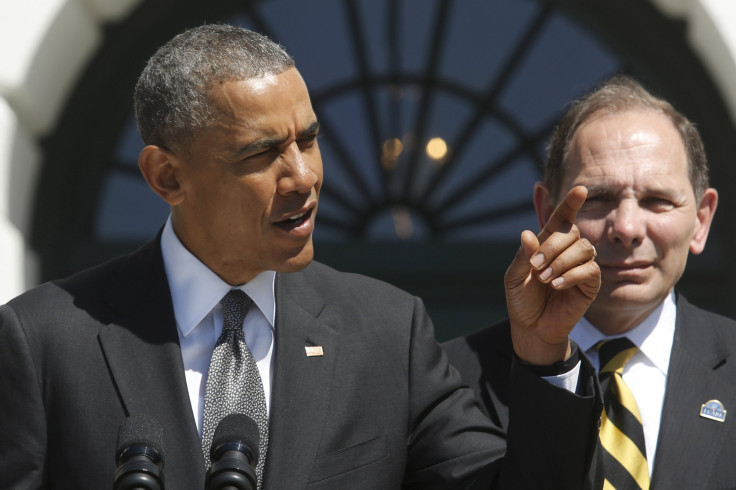Veteran Affairs Mental Health Scandal: Psychiatric Drugs Substituted To Cut Costs At West Virginia Health Clinic For Veterans

In an effort to cut costs, a West Virginia health clinic for veterans substituted older psychiatric drugs for prescribed ones, in a violation of policy that the Department of Veterans Affairs called potentially a "substantial and specific danger to public health and safety." The practice was recently brought to light by an agency whistleblower, whose allegations sparked a department investigation into the clinic's practices.
A Veteran Affairs medical center in Beckley, West Virginia, "encouraged providers to switch patients to older, less expensive medications...related to atypical antipsychotic medications," the U.S. Office of Special Counsel, which investigates cases brought by whistleblowers, concluded in a letter sent to the White House Wednesday.
Specifically, in order to meet a cost-savings goal for the fiscal year 2013, the clinic restricted the use of the drugs aripiprazole and ziprasidone, which are antipsychotic drugs that can be used to treat schizophrenia, "for patients who are stable on such medications," the VA investigation, carried out by its Office of Medical Inspector, found. Mental health providers, according to the investigation, felt they had no option but to adhere to the restriction. "They followed this guidance, despite their disagreement with the change in treatment," the investigation noted.
"At a time when many veterans are grappling with mental health issues, this VA facility was cutting corners on needed drug therapy to save money in violation of VA policy," Carolyn Lerner, head of the Office of Special Counsel, said in a statement.
The Office of Medical Inspector recommended that the Beckley medical center immediately stop "automatically removing Medical Center patients from [these] medications...without a legitimate clinical need." It also recommended that the center determine whether patients had been harmed as a result of being taken off these medications. In addition, it called for "appropriate action" against the center and the pharmacy and therapeutics committee that encouraged the drug changes in the first place, and suggested that while a physician is not required to serve as head of the committee, "the Medical Center could improve its policymaking and medication oversight with a physician as chairperson."
Lerner, the special counsel, wrote the White House that the matter was closed only "conditionally," depending on further investigations into claims from the whistleblower that wrongdoing at the center was "ongoing."
© Copyright IBTimes 2024. All rights reserved.






















